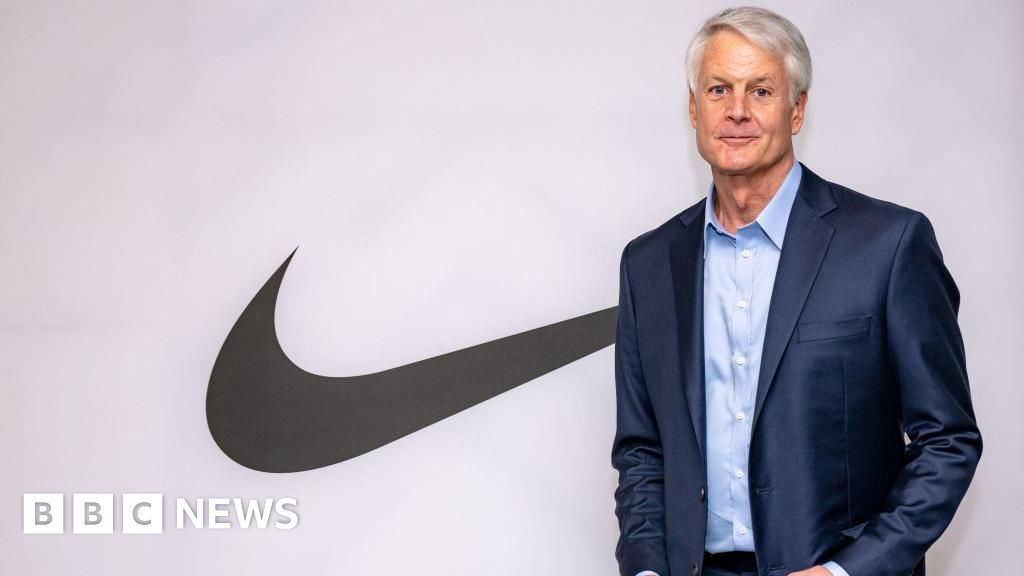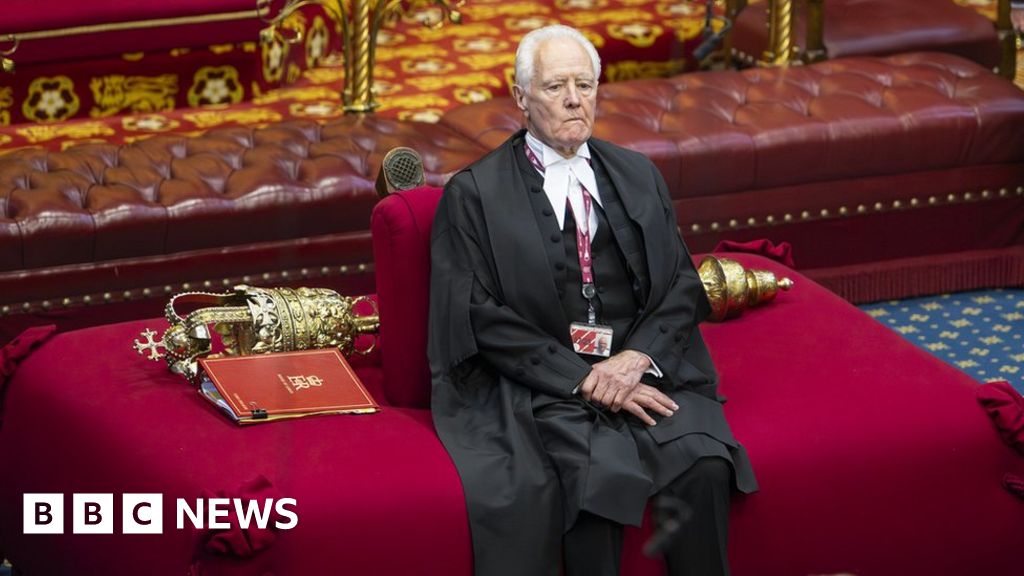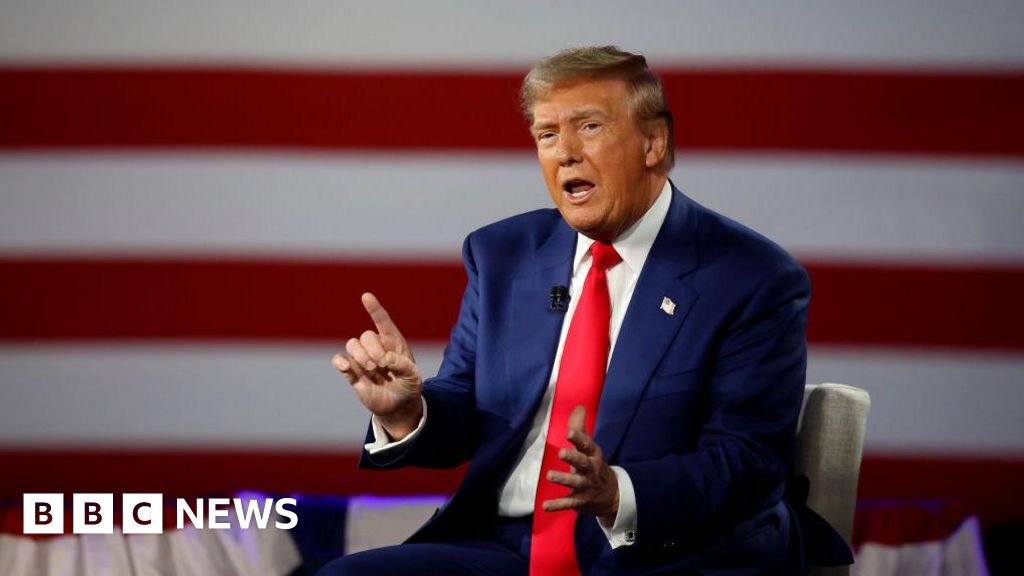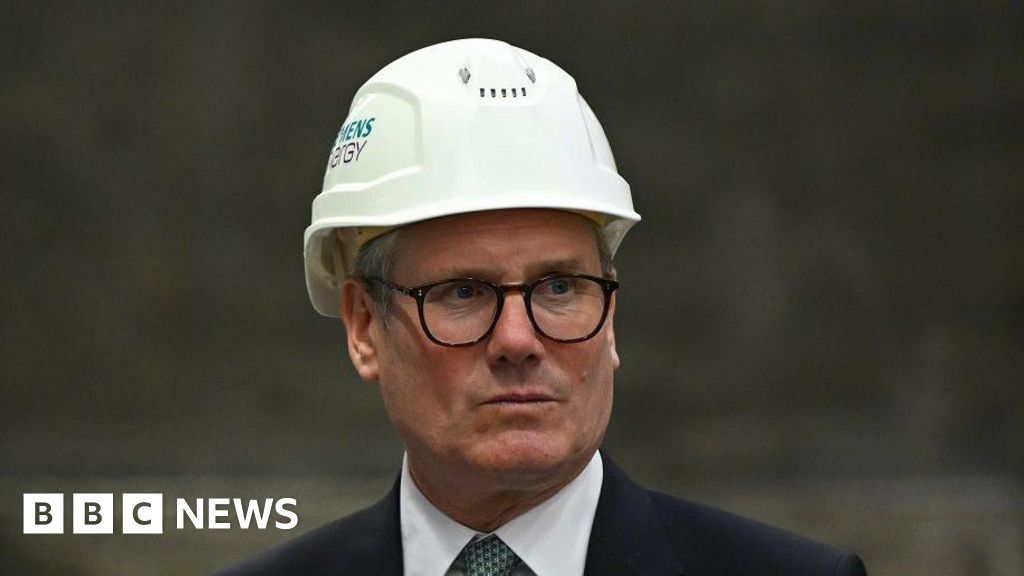This is an audio transcript of the Money Clinic podcast episode: ‘Can Stuart Kirk double his money in eight years?’
Claer Barrett
Hi, it’s Claer here. I really enjoyed meeting so many listeners at the FT Weekend Festival in London recently. But if you missed it, don’t worry, because you haven’t missed out. At the event, I interviewed Stuart Kirk, who is the FT’s Skin in the Game columnist. He writes about the ups and downs of managing his own portfolio in the Financial Times every Saturday. And he’s managed to grow his retirement pot to over half £1mn so far, but has now set himself the ambitious target of doubling his money within eight years. So can he get to 1mn? Well, only if he injects a lot more risk into his investment strategy.
[MUSIC PLAYING]
We’ll play you the edited highlights of our festival session discussing this with FT readers in just a minute. But before I go, I wanted to tell you that Money Clinic is gonna be taking a break. Don’t worry. We’ll be back with a new season firmly focused on investing in the new year. And until then, you can watch all of my video content about investing by following me on Instagram, on TikTok or X. I’m @ClaerB, spelt C-L-A-E-R-B on all of those platforms. To remind listeners, we will be talking about Stuart’s investment choices on this episode, but this is not intended as an investment recommendation. And as we always say, you must always do your own research. For now, pull up a foldaway chair in the FT Money tent and enjoy the highlights of my discussion with Stuart.
[MUSIC PLAYING]
Are we feeling cheerful or fearful about the Labour Budget in a few weeks time? (Crowd cheers) Oh, OK. We want to answer as many of your questions as possible by Stuart Kirk, who joins me here. Now it’s fantastic to see so many of you in the tent, but if you haven’t read Stuart’s column before, having a seven-figure investment portfolio by the time you turn 60 is a very noble aim. I’m sure it’s one that we all share, if you haven’t hit that target already. But it’s one that Stuart is looking to hit in seven and a bit, eight and a bit years’ time. He has a fantastic CV that he brings to bear, writing so forthrightly about money and investing in the FT every weekend. Obviously he has a background as an FT journalist, as the head of FT Lex, but he’s also been a professional manager of money at various institutions for the past 25 years. So please, let’s give a big, warm Money tent welcome to Stuart Kirk. (Applause)
Stuart Kirk
Thank you. Thank you. Good morning, everybody. Thank you very much for coming. For those of you who don’t read the column and sensibly don’t know who I am, the idea of the column and why it’s called Skin in the Game is my firm belief that unless people tell you what they own themselves in the advice business, everything that comes out of their mouth, you should more or less disregard.
My background is not in the retail sector. My background is advising institutional clients running institutional money, and there’s always been a massive gap between what analysts, brokers say on both on the buy side and on the sell side and what they own at home. So I took the rather stupid decision, particularly as I was getting divorced at the time, of revealing the full extent of my pension, and as a way of differentiating my column from all the other excellent advice columns out there. So what you see every week in the paper is truly what I own. It’s the only thing I own as I said in my first ever column. Everything else was taken away from me by a judge who I won’t tell you. So that is it. And there seem to be quite a number of readers who are in a similar boat.
So let’s step back a couple of steps and think, what do you do when you try and create a portfolio when you are a young 52-year-old? And I use the word young specifically because I think the way we construct portfolios needs to change or has changed over time. In the old days, an adviser would tell a man with a greying beard with not many years to go on this mortal coil that he kind of needs 50 per cent equities, 50 per cent bonds. And with every year that passes and every spinal bone that begins to creak, I need more and more bonds and less and less equities. But I am in perfect health and I have a two-year-old son, so I’m gonna be working and living hopefully for a very long time.
So instead of 60-40, I’ve got something like 80-20 equities-fixed income. And there are more and more people out there at the crazy edge of the spectrum in terms of asset allocation that would say I should have 100 per cent equities. And actually they are a lot less riskier than you think. And if you construct it well, you don’t really need any fixed income at all, particularly if the Fed cuts lots and they give you bugger all return anyway. So you might as well be picking away dividends and owning 100 per cent stocks. So that explains why it looks like I have a lot of equities, visibly what you may be advised to have for somebody in their 50s. Now, if you’re younger than me, you should just be full out 100 per cent equities. But we can go on to that later.
Claer Barrett
Now, I should say before we go any further, neither me nor Stuart are financial advisers. You know this because you read the FT Money section. We are gonna be talking about Stuart’s investment decisions, your own investment decisions. If anyone in the tent thinks that this is intended as individual financial advice or an investment recommendation that we’re personally making to you, get out of the tent now. Excellent. Everyone is still here. So, Stuart, tell us about what Project One Million is.
Stuart Kirk
Well, obviously, it makes a great headline. And I think it was Keynes who said that greed is temporary and fear is permanent. And that’s what drives markets. By the look of the number of people in here, greed is fairly a big, strong driver as well. (Laughter) And having been wiped out post-divorce I’m as greedy as they come. Not sure why I’m still in journalism, but the idea is to set myself a goal to try and take a little bit more risk. So I would normally expect, with inflation, not to do much better than five, six and a half per cent. The US equity market returns six and a half per cent real over the last hundred years, second-best performing market in the world. So I thought, well, I could say six and a half, but let’s do something a little bit more fun. Let’s make it 8 or 9 per cent. And that gets me roughly from my portfolio today . . .
Claer Barrett
Around just over half a million.
Stuart Kirk
To somewhere near a million by the time I turn 60. So that is for my own personal goal and to get myself out of bed in the morning.
Claer Barrett
OK, we’re gonna show a slide which just details the breakdown of your portfolio, Stuart. Talk us through your portfolio. What’s in it? What’s not in it?
Stuart Kirk
So what do I own? A lot of people write in and go, you’re a complete moron. You own a big chunk of money in UK stocks. Why do I own the UK? One, because they speak my language and the companies aren’t very far away. And if I want to write a nasty letter to a CEO, it’s very easy. Two, and most importantly of all, and I don’t joke, they’re cheap and I still believe they’re cheap. And three, my liabilities, my two-year-old and my three-year-old, all my liabilities are gonna be in sterling. So it always makes sense to have a big chunk of your pot in sterling. Of course, there are complicated ways you can do it, but the easiest way is just to own things that are denominated in sterling. And six months ago, everybody had written off the UK. Everyone had written off sterling if you remember. And of course, that’s always a good sign that sterling’s about to rally. And that gives me some protection.
What other nonsense do I own? Another 20 per cent in Japan. I ran Japanese equity money for 10 years. I know the country well. I know the stocks well. I also think they’re extraordinarily cheap. So does Warren Buffett. What else? I’ve got some energy stocks. One, it’s to annoy the ESG brigade. But two, six months ago, I thought energy stocks were cheap. And I have the same view as the CEO of Exxon and other big oil majors that the transition to a renewable future, which I believe in, will take longer than people expect. I think oil and gas will be around for a lot longer than everybody reckons. That bet has been very good. The second reason I own it is because it’s an inflation hedge. Not that long ago, we all worried that inflation was gonna get insanely out of control. And I think this is a cheaper way to hedge against inflation risks than other ways. So that’s another reason why it’s in there.
Treasuries, for the last three months, you can see why. As people are beginning to fret about a recession in the US, that’s beginning to do very well. I particularly like the short end. I do want some diversification. But like I said, I might torch that at some point and reinvest that money in equities because I want to take some more risk anyway. And have I covered them all, Claer?
Claer Barrett
Asian emerging equities.
Stuart Kirk
Asia. Cheap. Cheap. Cheap.
Claer Barrett
Easy. So one of the biggest gaps in your portfolio, I’m sure eagle-eyed members of the audience have been able to spot, is of course, the US market. Now, you can still ask questions about this. I’m just gonna roll it off before we go to the audience and say that’s the glaring gap. Why is that, Stuart?
Stuart Kirk
Yeah. So I get thousands of emails every single week from people calling me a complete muppet, complete idiot. Where’s your allocation to US equity fund . . .
Claer Barrett
That’s just Nathan.
Stuart Kirk
And that’s just my boss. And they’re completely right. The first day at Morgan Grenfell Asset Management, when I was 23, my boss said, never underestimate the US and never overestimate Europe. And it’s always been a no-brainer to own US equities. And in fact, I own some, sort of towards the end of last summer, which marked the low of the most extraordinary run in US equities that we’ve seen in about 10 years. So you should own US equities. Let’s be very, very honest about that.
But it’s also true, and if you read people like Andrew Smithers, for example, that equity valuations at an index level and indeed at company level do fluctuate around the mean. Now we all know that the US market is on a sort of uptrend in terms of valuation, but by and large, valuations mean revert. They move to a long-term average and no matter which way you cut it, I am afraid the US equity market in my view is bloody expensive. Now I’m expecting — and I was expecting six months ago before it started rallying — that valuation mean reversion to kick in. And I expect to buy it back when it does. And I’m still waiting. Indeed, there are fund managers who’ve been waiting 30 years for US equity market valuation to mean revert, but that’s the main reason.
Claer Barrett
OK, Now our first show of hands, we’d like to ask, how many of you, like Stuart, manage your own investment portfolio by yourself without the help of a professional adviser? I’m putting my own hand up here. OK, well, that is at least two-thirds of the room, I will say, Stuart. Does that surprise you?
Stuart Kirk
Well, FT festival, Money tent, maybe not. But I suspect that as a nation, it’s probably, I’d be amazed if it was 5, 10 per cent. I mean, I guess some people pump the odd stock. There are meme investors and people doing that sort of thing, but that’s a high number. Well done.
Claer Barrett
OK. If you would like to ask a question, please raise your hands. We want to get as many people in as possible. Should we start? The man at the back with the grey jumper and the glasses?
Audience member 1
Hi, I’m 66 and fully equity.
Stuart Kirk
Come on.
Audience member 1
When I die, I’ll still be fully equity. I’d like to ask you, how much more likely would you be to get £1mn, how much quicker would you get there if you could be in individual equities rather than interests?
Stuart Kirk
Yes. Well, in theory, no faster. So my ETFs are mostly equity ETFs and if equities go up in aggregate, I should return the same. Now, the other way of asking your question is, if I took more individual risk either by having fewer ETFs or in extremis individual stocks, again, the answer is my portfolio should be agnostic. To answer your question from portfolio theory, I would like to start buying equities because I think it would be a more fun column. ETFs are getting sexier. You can buy sector ETFs, for example, so you can get narrower in your approach. I was a stock picker for 25 years and I think I was OK at it, but so do most stock pickers, and their results don’t prove that.
Claer Barrett
I take it, sir, you at the back, you like to trade in individual equities. He’s nodding. He does. Can we have another show of hands? If you trade in individual equities, you buy shares in individual companies as part of your portfolio, can you please raise your hand? OK. So I would say that’s about a third of the room, maybe a little bit higher. Very interesting. We hope that’s reflected in the questions. So to return to the questions, we come to you at the front first.
Audience member 2
Good morning. You’ve talked about ETFs. But there are other opportunities one could actually look at it because of the economic conditions that we are in, especially in the physical gold market. That’s where I am. And I noticed that especially with certain types of coins, for instance, you could make a return without paying capital gains or VAT. So why is it that you’re not properly diversifying into other arenas where the returns are far greater because of tax exemptions?
Claer Barrett
Yeah, that could become even more important after the 30th of October.
Stuart Kirk
I did write a whole column on gold. For those who haven’t read it, this is how you should invest in gold. My wife is a very, very serious jeweller and we buy a lot of gold. She was head designer at Monica Vinader and all of that. I can answer lots of questions on diamonds and gold and jewellery, if you like. But this is the right way to invest in gold. You don’t buy Basel coins because there’s a massive, massive red over the spot price. What you do is you go to an auction site where they’ve bought everything from a large estate.
What you don’t do is go to an auction where they’re selling jewellery because it’s full of experts who know exactly the price of gold. And you very, very rarely get anything that’s less than a chunky premium. But at the end of a lot of these options of furniture and things like that, there is jewellery. And the people in those auctions know nothing about jewellery at all. They’re there to buy furniture and they’re there to buy chairs and they’re there to buy paintings. And you can pick up gold and you get your little calculator out and you work out how much it weighs and you work out what 24 carat should cost . . .
Claer Barrett
Take your digital kitchen scales . . .
Stuart Kirk
Take your scales and you can buy gold in these sorts of auctions way below the spot price. So while I completely agree with you, and I wrote a year ago that you should be buying balls of gold, there are ways to do it so that you don’t pay anywhere near the spot price and you get a nice piece of jewellery. And if you sell at retail, you double your money because most things you buy on the high street are at least 30, 50, 100, 200 per cent over the scrap price. So there you go.
Claer Barrett
Right. Well, the next general sale auctions around here are gonna be packed with Money readers. Our next question, we have a lady with blonde hair in the middle.
Audience member 3
Hi Stuart. Just going back on what Claer has alluded to in terms of the 30th of October, with the narrowness in your position, what impact do you think it would make on your trading if capital gains tax was 30 or 40 per cent?
Stuart Kirk
Well, like I say, I’ve got a two-year-old, so I don’t intend to trade that much. But clearly it’s something that one would have to take into consideration when you decide, A, your level of turnover and, B, how much you want to sort of go in and out and micromanage your portfolio. In theory, investors should be agnostic between dividends and capital payouts, right? So this obsession that we have with dividends really shouldn’t exist in capital market theory because whatever a company pays out will come off its market cap. So the only thing that really matters in that choice between receiving a dividend and just selling a share is tax consideration. And of course, something like that would make that decision much more important to make. So it may be that dividends become even more important vis-à-vis selling. But we’ll have to see.
Claer Barrett
Now, you’re in the fortunate position that all of your portfolio is contained within your pension. Or so we think . . . Because other . . . other horrors happen to pensions. We won’t stray too much into it. Now we have a question from the left hand side of the tent, guy in the blue shirt.
Audience member 4
Thank you. You mentioned UK stock’s cheap. Just wonder if you could talk about what catalysts you think might create the conditions for repricing of those.
Claer Barrett
Repricing up or down?
Stuart Kirk
Yeah, I mean, they’re doing well at the moment, bizarrely, because sterling is rallying as well, which is usually not the way it works. And, you know, you see all the figures of the percentage of revenues and profits that are driven from abroad for FTSE 100 companies. I’m not saying that UK companies are the best companies in the world, so they’re very heavily weighted towards energy, as you know, and then to pharma and banks and things like that. And of course, I’m running a portfolio here. And relative to the US, I feel that they’re cheap, that there’s a lot of mid-cap stocks in the UK that are particularly attractive. There’s some tech things in there that are quite exciting as well.
I haven’t quite got the guts yet to buy UK small-cap companies, but some of them, on cash flow valuations, like cash flow return on invested capital and that sort of stuff, the UK is almost the most attractive market on planet Earth in that regard. A lot of big companies are fairly useless, but a lot of smaller ones are really, really quite interesting from a valuation point of view.
The other thing I like about the UK is it’s really the only country apart from the US where managers really care about shareholders, right? It’s true about Japan, it’s true about Europe. When you really look into a CEO’s eyes in Europe or in Asia or in Brazil or in Argentina, they don’t really care about you, as in the holder of equity. But UK managers have been brought up in this Anglo-Saxon world that shareholder returns are paramount, whether you believe in that vis-à-vis saving the planet or stakeholder capitalism or whatever. But another reason I own the UK is because I know they care about me as an owner of equity.
Claer Barrett
OK. I’m conscious on the right side of the tent, we haven’t had much action yet. Please go ahead, sir.
Audience member 5
Hi Stuart. Thanks for the talk. They said Chinese stocks are quite cheap. What kind of sector do you feel the most potential in the coming months? And if Trump gets in, what do you think that impact might have?
Stuart Kirk
The other way of asking that is, you know, a lot of people think that Chinese stocks are cheap and are going to get cheaper. And, of course, markets discount into the future. And so they’re cheap because people probably think things aren’t gonna get better. And of course, clearly the real estate sector is bloody horrible, but it’s a big chunk of the market now. I have absolutely no idea whether, you know, what we’re hearing about the Chinese real estate sector is true or not. I’m guessing it’s probably pretty horrible when we hear horror stories about empty buildings and all the rest of it. But I’m willing to take a punt at seven, eight, six and a half times PE that it might be better than that. And in fact, we knew about the Chinese real estate sector two years ago, three years ago, four years ago, people were talking about it. And so my argument is always the reason we got from a 15, 16, 17 per cent down to six or seven or eight is this expectation that Chinese real estate was gonna go down the toilet. So markets pre-empt the bad news. And my hope now is that will bottom up and just a small bit of good news will cause a re-rating.
Then there’s sexy big techy-type firms and Amazon equivalents, the new wavers and all of that sort of stuff as well. But really, because of its size, real estate has to recover. And by extension, the banks too. Because if that doesn’t, the banks will all go bust and we’ll have a Japanese-style 1989 situation and then God knows where we are. But if that happens, everything gets wiped out, I suspect. And that’s another reason why you’re better off owning cheap UK, cheap Japan. So all these equity portfolios will fall if the US does or China blows up. But these ones will fall less. You want to be on the cheap side of things when stuff roll over. Now I don’t know what another show of hands, whether we think the equity market’s going to keep booming for the next five years or not.
Claer Barrett
Well, we can have a show of hands. Do you think that the equity market is going to keep on booming for the next five years? I reckon it will. I’m an optimist.
Stuart Kirk
That’s really not very many.
Claer Barrett
But I am in a very, very small minority. About . . .
Stuart Kirk
Jesus, I’m going to rush out and buy equities, with all due respect. (Laughter)
Claer Barrett
I would say we have perhaps about 15 hands go up there out of 250 people. Just a quick note. We got lots of young faces in the tent. If you’re new to investing and all the talk about valuations and PE ratios — that’s price-earnings ratios — was a little bit baffling for you, the good news is, me and Stuart made a podcast called The Five Minute Investor, where we explain different pieces of investment jargon and the FT started to put them on TikTok. And Stuart, talking about PE ratios is the first-ever FT TikTok to get to 1mn views. How about that? (Applause) So this is the kind of content that the kids need to be consuming, not all of this rubbish . . .
Stuart Kirk
My life is complete.
Claer Barrett
. . . about crypto. So this side of the room start putting your hands up. OK, right. You in the middle in a maroon shirt. Go ahead, sir.
Audience member 6
Hi, Stuart. If you were to go into individual equities, could you give us a few ideas, maybe even a few names of what that might look like?
Stuart Kirk
So I’m at the Warren Buffett end of the spectrum and that’s why I’m a terrible investor. I would have missed the whole tech boom. I would have missed Nvidia. I would have missed the Magnificent Seven and all of that sort of stuff. I just can’t, with all good conscience, buy anything that’s I mean, even Apple’s on 32 times forward earnings. I mean, when I grew up, you’d just be laughed out of the room. I invested. I was running money during the dotcom boom and I was almost running money at the end of the 80s in Japan, and I saw people being fired for refusing to buy dotcom stocks cheaper than that. In fact, I know now very famous head of UK equities who was marched out of the room for refusing to buy dotcom stocks sitting very next to me. So I wouldn’t bring myself to buy stocks like that. And I think there’s going to be a big rotation into just better-valued companies. And that’s what you need to do.
Claer Barrett
Well, certainly that seems to be the view of the tent. OK. Let’s squeeze in more questions. The man on the right hand side of the tent.
Audience member 7
Thanks. Thanks, Claer. You mentioned about younger investors where they might be going with this and the room is jittery about equities as well. Stuart, what’s your views on digital assets, contracts for difference, moving away from sort of mean reversion trading and relative value trading into some of these other areas like private credit as well?
Stuart Kirk
Yeah. Yeah.
Claer Barrett
Good question.
Stuart Kirk
Now clearly I look at that portfolio and if I lived on the west coast or I talk to some younger people or my friends at the sort of snazzier end of the market who aren’t as grey, they’re just like yawn, right? There are younger people doing absolutely bonkers, crazy stuff that I simply don’t even understand. And clearly, there’s no crypto up there either. There’s no contracts for difference. You know, there’s people doing crazy stuff bordering on gambling-type products. I’m not doing any options. I’m just a) I’m not smart enough b) I’m not from that background. And no matter how sexy a lot of these things are, they can’t deny the laws of risk and return. If you want high returns, they’re going to be at more risk.
There doesn’t seem to be too many tax benefits. The one benefit you do have is leverage. People always say, why don’t you have any private equity? And I’ve written about this a lot. All academic research shows that private equity returns are no better than public markets if you remove leverage. Right? But the addition of leverage is where you get the returns. And indeed, people argue that the reason the private equity industry exists is because most trustees — most pension trustees — aren’t allowed to leverage your pension portfolio. And so this is a way of sneaking leverage into a pension fund. And if you look at the long-term return of the equity market, they go up. So you add leverage to that, you’re gonna win. So that’s probably the one area of the market I would think about. Too stupid to understand crypto. Too old-fashioned.
Claer Barrett
Though if there had been that bitcoin ETF available in the UK, you would have been tempted.
Stuart Kirk
Yeah. So I reckon that the bitcoin . . . I mean, what do I know? There are smarter people than me now advising their clients in the US and others that have a bit, 5 per cent, who cares?
Claer Barrett
OK. Right. Can we have some more hands on the right side of the tent? There are two people at the back. Go ahead.
Audience member 8
What price indicator or leading indicator or macro event will motivate you to invest back in US equities?
Stuart Kirk
The short answer is none. I have spent a lot of my professional career trying to fire all of our economists at every bank I’ve worked at and just use IMF forecasts. Very little evidence that most, any macro indicator is a leading indicator of equity returns. In fact, it tends to be the reverse. I’ve written about interest rates, for example. There is no proof whatsoever that interest rates are important to the medium- or long-term return of equities. GDP doesn’t make any difference whatsoever.
The one variable I would say is if you saw a surge in productivity for the first time in a long time, I would be very bullish. Now, if AI is the one, then all bets are off. If you have a productivity surge, you can have rising nominal wages without margins deteriorating and without inflation. And that’s an economic identity. Those four things need to add up. And it’s only if productivity surges that you can have higher wages. So if you saw that total factory productivity was beginning to surge maybe because of AI — and Mr Tim Harford over in the other tent said, don’t bet on it — but if you saw that, I’d be buying the balls off the US market. And everything else. Am I allowed to say that? Or tennis balls, tennis balls.
Claer Barrett
There’s an explicit rating now on the Apple podcast or for the Money Clinic podcast since the last time you were on, I think. We have (inaudible). OK. Our final question of the day from the lady in the front row.
Audience member 9
Thank you so much. Why don’t you have any Europe? Can you go into the reasons for that?
Stuart Kirk
Crap. Crap place, crap companies, great lifestyle. I mean, it’s a little bit like banking. You should definitely work for a bank. Awesome. Don’t own one. Definitely go on holiday there. Don’t own the equity. Now, it may change. Things change, right? The US may underperform Europe over the next hundred years. I mean, there are few very, very good companies and few small ones. They tend to blow up eventually. Europe can grow. Revenues can grow. But there’s a big difference between volumes and profit growth and return on shareholders equity. They’re very, very different things. You can have very successful companies and there are many, many, many, many, many.
But that is very different to the returns generated on equity capital. And it’s simply that Europe focuses, in my view and it may change, less on that than the Anglo-Saxon markets for cultural reasons and other reasons, mostly because there’s a history of companies being funded via banking and via credit and less via equity capital markets. So whereas places like the UK have tended to rely on equity as a way of raising capital, Europe has tended to borrow its money and therefore instinctively managers care less about equity holders. Now that may change and if you do think that that’s about to change — and a lot of people say that about emerging markets and about Asia and about Europe — then Europe’s attractive.
[MUSIC PLAYING]
Claer Barrett
OK. Well, folks, I’m afraid we’re going to have to call it quits there. Can Stuart double his money in eight years? Well, I really hope so. Please, give it up for Stuart. (Applause)
Thanks to Stuart Kirk and to all the readers who took part in the events. I’ve put a free-to-read link in today’s show notes to Stuart’s most recent Skin in the Game column, as well as his piece on buying gold and a link to a Five Minute Investor episode about what is a PE ratio. You can also find Stuart on X, @StuartKirk__. And thank you to everybody who filled out the podcast survey. All of your support makes this podcast possible.
If you’re interested in taking part in the next series of Money Clinic, which as I said, is all about investing, drop me a line. Our address is money@ft.com and do follow me @ClaerB on Instagram, TikTok or X for further updates as they happen. Money Clinic was produced by Tamara Kormornick. A special thanks to Tom Ursell for the sound recording from the Money tent at the FT Weekend Festival. The sound design was by Breen Turner and our editor this week was Manuela Saragosa. You heard original tunes by Metaphor Music and Cheryl Brumley is the FT’s global head of audio.
And finally, just to recap that disclaimer, the Money Clinic podcast is a general discussion around financial topics and does not constitute an investment recommendation or individual financial advice. For that, you’ll need to find an independent financial adviser. That’s all the small print for now. See you back here soon. Goodbye.



























































































































You must be logged in to post a comment Login